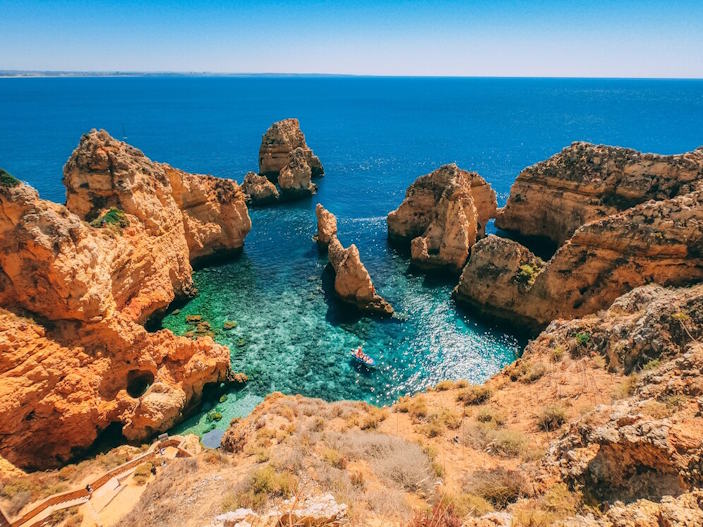
Assessing and modelling ecosystems’ dynamic processes to guide restoration activities and to improve models used for climate
6.000.000€
Description
The main goal of this opportunity is to advance knowledge and develop new modeling tools to support the restoration of degraded ecosystems, ensuring they continue to provide valuable ecosystem services. The focus is on integrating nature restoration into climate and land-use policy models and supporting decision-makers with up-to-date scientific tools. Projects should address connections between ecosystem restoration and issues such as climate change mitigation, adaptation, land degradation neutrality, and disaster risk prevention. Both terrestrial and marine ecosystems are included, and proposals must specify their area of focus. International cooperation and transparent, FAIR data management are strongly encouraged, with emphasis on EU Member States and Associated Countries, but also open to certain non-EU partners.
Admissible Projects
-
Model dynamic ecosystem processes (terrestrial or marine) under climate change to support ecosystem restoration and policy planning.
-
Provide quantitative reference thresholds (e.g., habitat quality, connectivity, environmental status) aligned with EU biodiversity and marine directives.
-
Simulate and evaluate restoration pathways toward 2030–2050 targets under the EU Nature Restoration Regulation.
-
Prioritize ecosystems with high co-benefit potential (mitigation, adaptation, land degradation neutrality, disaster risk reduction).
-
Integrate field observations, existing datasets (e.g., IPBES, Natura 2000), including novel data collection when needed.
-
Deliver practical guidelines for restoration practitioners—e.g. managing invasives, reconnecting habitats.
-
Ensure FAIR-by-design data outputs, open-source models, and transparency (assumptions, code, protocols).
-
Coordinate with ESA’s FutureEO projects and parallel Horizon topics (BIODIV‑04 & BIODIV‑06), plus biodiversity policy services like BioAgora.
Examples:
- A project developing a new model to simulate the restoration of coastal wetlands, using Copernicus satellite data and sharing results on the European Open Science Cloud.
- An initiative focusing on restoring forest ecosystems, providing practical guidelines for land managers, and coordinating with other EU-funded projects.
- A research consortium modeling the impacts of ecosystem restoration on climate adaptation in agricultural landscapes, ensuring all data is FAIR and interoperable.
Eligible Expenses
- Personnel costs for researchers, technicians, and project staff
- Costs for data collection, including satellite imagery and field surveys
- Development and maintenance of modeling tools and software
- Purchase of equipment and materials directly related to project activities
- Travel and accommodation for project meetings, fieldwork, and international cooperation
- Dissemination and communication activities, including workshops and stakeholder engagement
- Costs for data management, storage, and ensuring FAIR data principles
- Coordination and networking with related projects and initiatives
- Subcontracting of specialized tasks directly linked to project objectives
- Access to and use of the European Open Science Cloud (EOSC) for data storage and sharing
Note: All eligible expenses are covered by a lump sum contribution as defined by the Horizon Europe Programme. Only costs directly linked to project implementation are eligible.
Financial Information
- Budget for this Call: 18.000.000€
- Number of Grants attributed: 3
- Budget per project: 6.000.000€
Eligibility Criteria
- Proposals must adhere to specified page limits and layout requirements.
- Applicants must be from eligible countries, mainly EU Member States, Associated Countries, or certain non-EU countries with specific funding provisions.
- Projects using satellite-based data must include Copernicus and/or Galileo/EGNOS systems.
- Applicants must demonstrate sufficient financial and operational capacity.
- Proposals must clearly specify whether they focus on terrestrial or marine ecosystems.
- Projects must meet evaluation thresholds and criteria for their chosen area.
- Data produced must be FAIR (Findable, Accessible, Interoperable, and Re-usable).
- Coordination with other projects and relevant initiatives is required.
Get matched with our experts

Need help applying?
Assessing and modelling ecosystems’ dynamic processes to guide restoration activities and to improve models used for climate
5
Specialized Consultants
SMART Application Package

Initial meeting to confirm eligibility.
Connection with the best specialized consultant for the incentive and industry.
Complete management and submission of application.
Timeline
May 6, 2025
Application Opening
The period when applications are accepted for the opportunity.
Sept. 17, 2025
Application Closing
The date when applications for the opportunity close.
May 6, 2025
Application Opening
The period when applications are accepted for the opportunity.
Sept. 17, 2025
Application Closing
The date when applications for the opportunity close.
